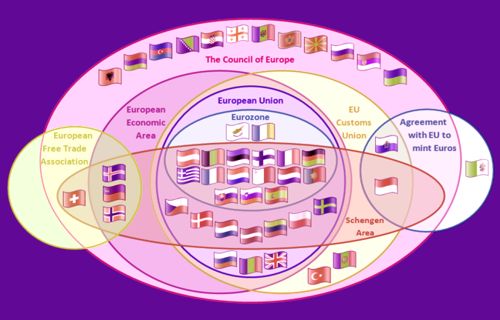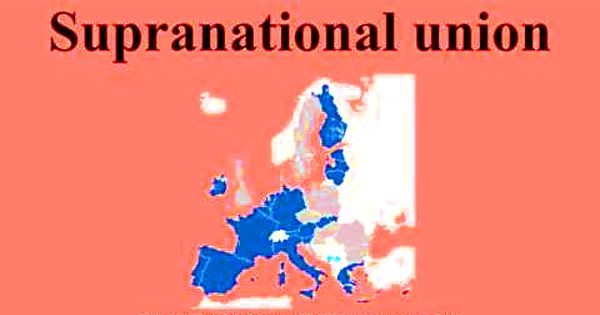A supranational union is a type of multinational political union where negotiated power is delegated to an authority by governments of member states. It is a supranational organization that is an international group or union in which the power and influence of member states transcend national boundaries or interests to share in decision making and vote on issues concerning the collective body. The EU, the United Nations, and the World Trade Organization (WTO) are all supranational groups, to one degree or another.
Supranational Organization is an organization that exists in multiple countries. While, theoretically, supranational could refer to multinational corporations, the term most often describes an international government or quasi-government organization. The term is sometimes used to describe the European Union (EU) as a new type of political entity. In the EU, each member votes on a policy that will affect each member nation. The benefits of this construct are the synergies derived from social and economic policies and a stronger presence on the international stage. It is the only entity that provides for international popular elections, going beyond the level of political integration normally afforded by international treaties. Supranational organizations often have a direct role in regulation.

The term “supranational” is sometimes used in a loose, undefined sense in other contexts such as a substitute for international, transnational, or global. For example, an international treaty may set up certain standards for international trade. However, enforcement of these provisions is left to the individual, sovereign governments. Supranational organizations often give member states greater collective influence in global affairs.
While the focus of most supranational organizations is to ease trade between member nations, the entity may also have political implications or requirements. Another method of decision-making in international organizations is intergovernmental in which state governments play a more prominent role. For example, it may require that all member nations participate in certain political activities, such as public elections for leadership. Such supranational organizations are seen by many as a better way to govern the affairs of nations, with an eye to preventing conflict and promoting cooperation, particularly on economic and military matters
















